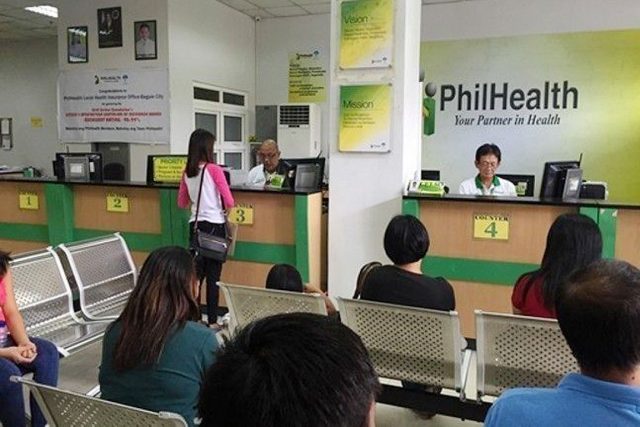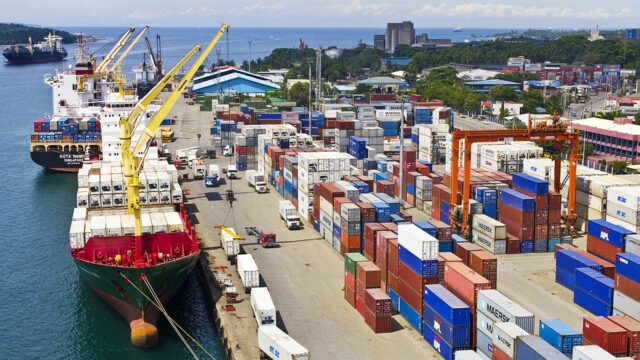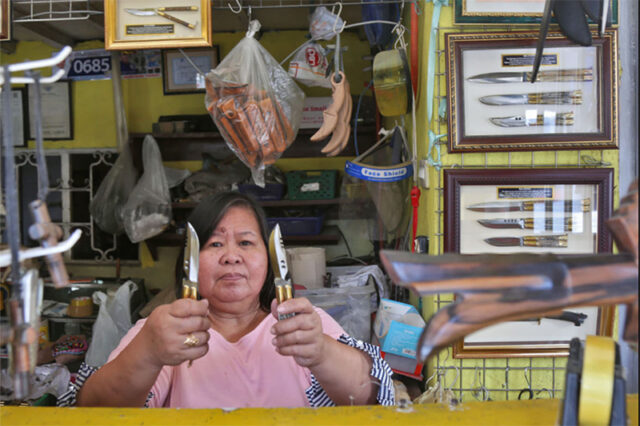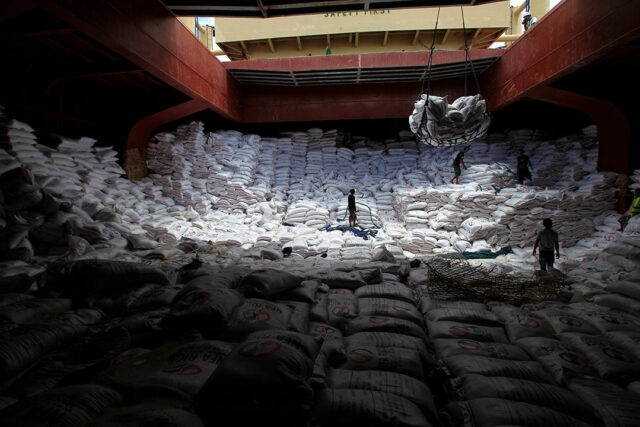By Kyle Aristophere T. Atienza, Reporter
PRESIDENT Ferdinand R. Marcos, Jr. may need to return the budget bill to Congress as line-item vetoes would not be enough to cure errors committed by a bicameral conference committee, according to a group of former government officials and governance experts.
Mr. Marcos is set to sign the proposed P6.352-trillion national budget for 2025 on Monday, after canceling its initial Dec. 20 schedule amid legal questions and huge funding cuts for social services.
“We are concerned that line-item vetoes will not be enough to rectify the problematic priorities embedded in next year’s budget,” the Transformation, and Excellence in Governance (INCITEGov) said in a letter addressed to Mr. Marcos, dated Dec. 28.
The budget crafting process might have violated constitutional principles of checks and balances, the group said, and it did not help that the bicameral conference committee’s budget insertions and allocations “were made with limited scrutiny.”
Bicameral members bypassed a “thorough review essential for such significant legislation.”
Malacañang last week said the President is expected to veto some items in the budget bill amid backlash triggered by cuts in the budgets for social services including education and the removal of state subsidy for the Philippine Health Insurance Corporation (PhilHealth).
Mr. Marcos earlier vowed to restore the Department of Education’s (DepEd) proposed budget, particularly the P10-billion funding for its computerization program for 2025 but justified the defunding of PhilHealth despite concerns over its fiscal health, citing its reserves.
INCITEGov urged Mr. Marcos to thoroughly examine unprogrammed appropriations and reconsider alleged pork barrel items in the proposed budget.
It said several key infrastructure projects, including those listed in Build Better More, are inexplicably found in the unprogrammed appropriations, which could lead to “to potential delays and inefficiencies” in project implementation.
All the while, substantial allocations for several infrastructure items especially in the Department of Public Workers and Highways (DPWH) that are “unmistakably pork barrel in nature” have been prioritized, it added.
University of the Philippines Los Baños economics professor Enrico P. Villanueva earlier said the massive budget increase for DPWH is highly questionable as only 11, or 6% of the 186 flagship infrastructure projects of the government are expected to be ongoing by 2025
“With 186 projects costing P9.6 T(rillion) over several years, the extraordinary allotment for infra is questionable,” he said, noting that DPWH’s allocation in the Congress-approved budget rose by P288 billion to P1.1-trillion funding.
Only 51 of the flagship projects are to be funded by the General Appropriations Act. Eighty-six will be funded by official development assistance, while 43 of them are under the private-public partnership scheme, he noted.
The statement is signed by former top government officials, including former Budget Secretary Florencio B. Abad, former Education Secretary Edilberto C. De Jesus, former Commission on Higher Education Chairperson Patricia B. Licuanan, and former National Anti– Poverty Commission Director Philip Arnold Tuaño.
INCITEGov urged the President and legislators to restore funds removed from essential sectors such as health, education, agriculture, social protection, transportation, and climate change adaptability.
“These services are crucial for the welfare of the most vulnerable citizens and the nation’s well-being.”
The budget of DepEd dropped by P11.56 billion to P737 billion, while that of the Department of Social Welfare and Development and the Department of Health declined by P95 billion to P217.3-billion funding and by P25.7 billion to P247 billion, respectively.
Meanwhile, the Action for Economic Reforms (AER) in a separate letter to the President put focus on how the Executive branch can cure the “unconstitutional” zero allocation for PhilHealth.
Mr. Marcos should veto line appropriations not in accordance with law and the government’s fiscal program, including infrastructure projects not properly vetted by the DPWH and those that are not yet ready to be implemented, AER said.
“This will free up fiscal space, which can prompt Congress to pass a supplemental budget as provided under Article VI, Section 25(3) of the Constitution,” it said.
SUPPLEMENTAL BUDGET
Passing a supplemental budget, which can be tackled as soon as Congress reconvenes in January, can also cure the cuts in the funding for basic social services such as education, the Pantawid Pamilyang Pilipino Program (4Ps), agriculture, transportation, and calamity fund.
The Congress-approved budget violated the Universal Health Care (UHC) Act and the Sin Tax Reform Laws, AER said, as it cited a jurisprudence stating that an appropriations law cannot amend a statute.
According to Section 11 of the UHC Act of 2019, the total amount of PhilHealth reserves “shall not exceed a ceiling equivalent to the amount actuarially estimated for two years’ projected program expenditure.
If actual reserves exceed the required ceiling at the end of the fiscal year, the excess “shall be used to increase the program’s benefits and to decrease the amount of members’ contributions,” it added.
The Sin Tax law mandates the government to allocate 80% of revenues from tobacco products and sugar-sweetened beverages for PhilHealth to fund the UHC program.
“We respectfully submit that this is unconstitutional, as existing jurisprudence states that the appropriations law cannot amend a statute,” AER told the President.
“In this instance, it will be amending at least three statutes above, which cannot be done indirectly through the budget.”
The group also cited the United Nations International Covenant on Social, Economic and Cultural Rights, of which the Philippines is a signatory, which says that it’s also the State’s obligation to provide for the premiums of the indigents.
The covenant states that the State should use the maximum of its available resources for the realization of the right to health.
AER said Section 15, Article XII, of the 1987 Constitution calls for an “integrated and comprehensive approach to health development which shall endeavor to make essential goods, health and other social services available to all the people at affordable cost.”
“We would also like to emphasize that it is a matter of fairness, Mr. President, that the government’s share in PhilHealth’s premiums for all indirect contributors be appropriated to PhilHealth as mandated by law,” the group said.
“The government should not leave the burden of funding PhilHealth to direct contributors (the workers and self-paying members) and the employers that shoulder part of their workers’ premiums,” it added.
AER said the President’s exercise of his line veto power and the supplemental budget option will not delay the approval of the 2025 budget nor risk a reenacted budget.
“It will also return the initiative to Congress, which in the first place created the issues that the President is now confronting.”












